The Art Of Islamic Living : The Sixth Fitness by Dr. Ahmad Al- Bara' Al-Amiri
The Art Of Islamic Living : The Sixth Fitness by Dr. Ahmad Al- Bara' Al-Amiri
Publisher:
IIPH (International Islamic Publishing House)
Author:
Dr. Ahmad Al- Bara' Al-Amiri
Language:
English
Binding:
Hard Cover
Pages: 185
Size: 14x21cm
Couldn't load pickup availability
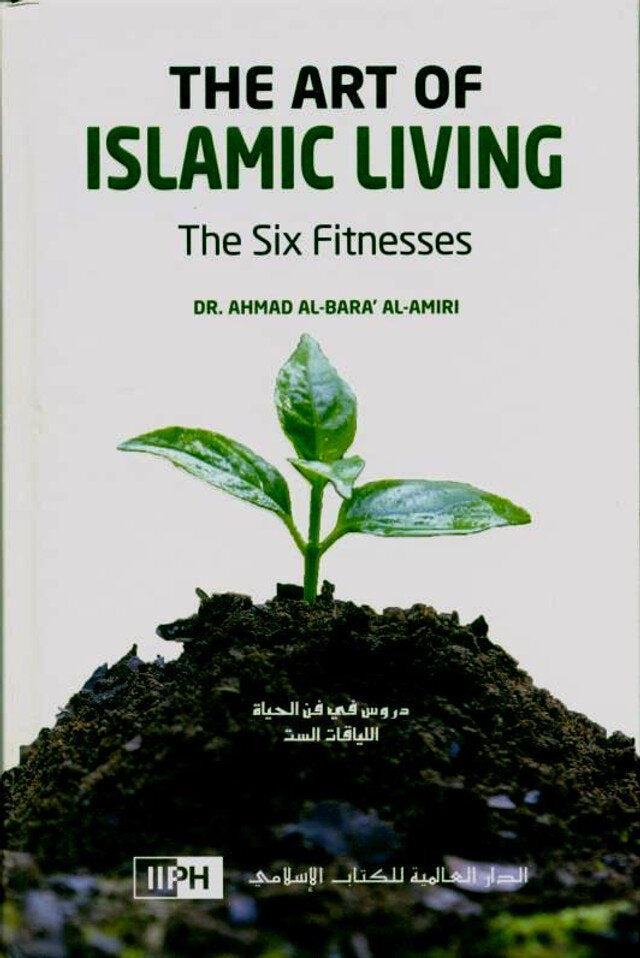
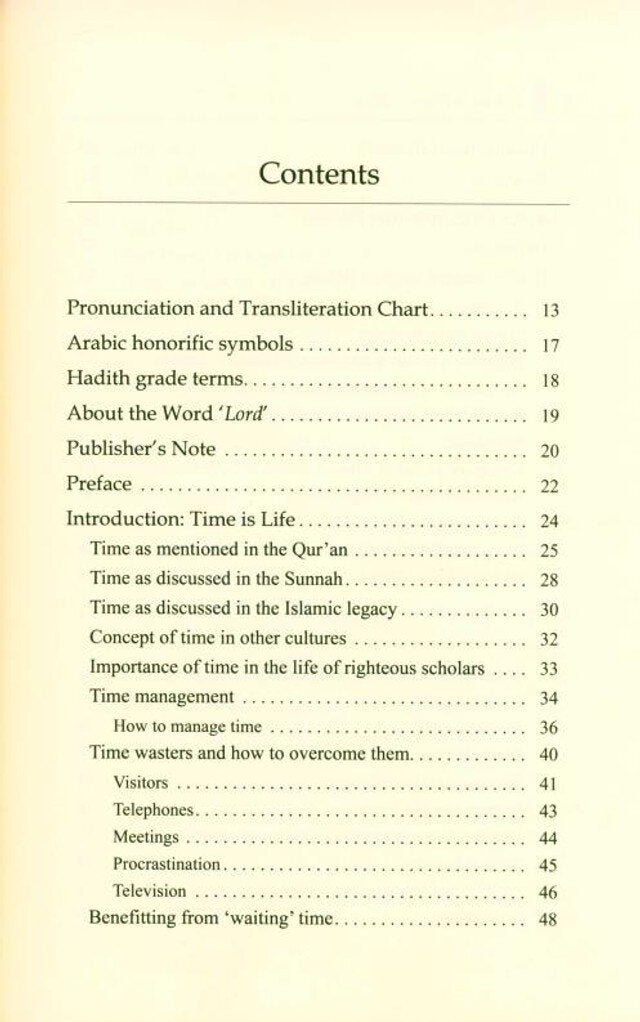

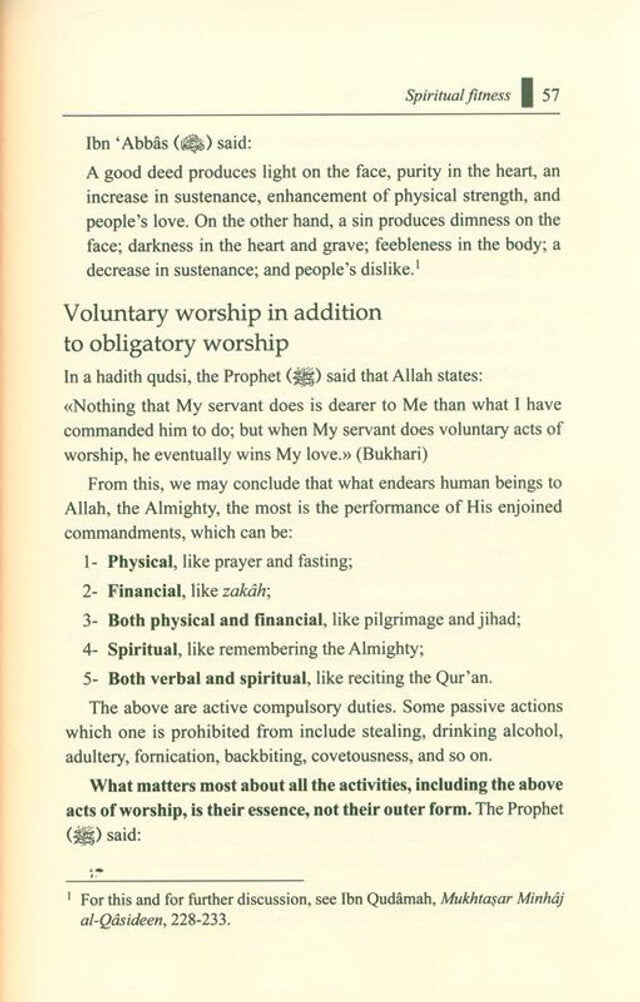
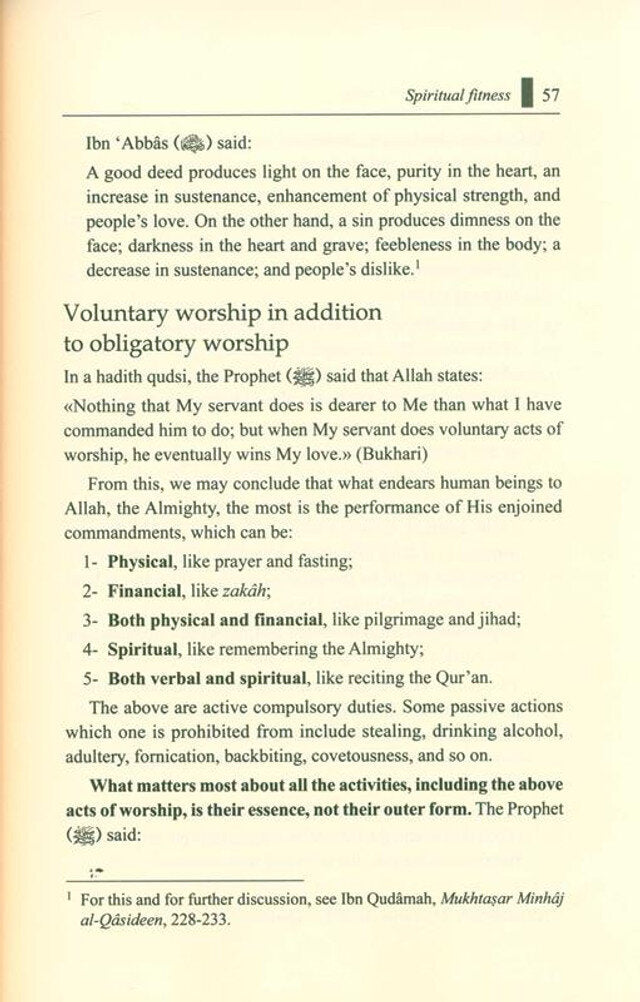
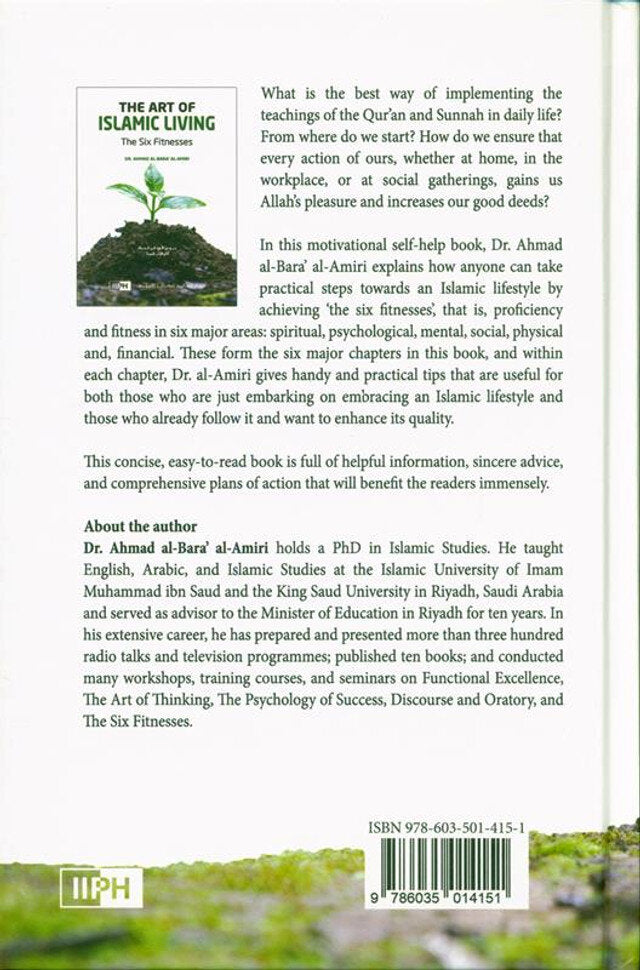
Collapsible content
Description of Book
The Art Of Islamic Living : The Sixth Fitness by Dr. Ahmad Al- Bara' Al-Amiri
In The Six Fitnesses: Achieving an Islamic Lifestyle, Dr. Ahmad al-Bara’ al-Amiri offers practical guidance for integrating the teachings of the Qur’an and Sunnah into daily life. This motivational self-help book is designed for anyone seeking to align their actions with the will of Allah, whether they are beginning their Islamic journey or looking to deepen their commitment. Dr. al-Amiri outlines how to gain Allah's pleasure and earn good deeds through a holistic approach focused on six key areas: spiritual, psychological, mental, social, physical, and financial fitness.
Each chapter explores one of these areas, offering insightful advice and actionable tips to help you develop proficiency and balance. From fostering a strong spiritual connection to maintaining mental clarity and social harmony, this book is packed with practical tools that will benefit readers in every aspect of life. Easy-to-read and deeply motivating, The Six Fitnesses provides clear plans of action to help you live an Islamic lifestyle that is both meaningful and fulfilling. Whether at home, at work, or in social settings, this book shows how to make every action a step closer to pleasing Allah.
Publisher
IIPH (International Islamic Publishing House)
Author
- Dr. Ahmad Al- Bara' Al-Amiri
Sample Pages - Content
Page:01
THE ART OF ISLAMIC LIVING
The Six Fitnesses
DR. AHMAD AL-BARA' AL-AMIRI
IPH
دروس في فن الحياة اللياقات الست
الدار العالمية للكتاب الإسلامي
Page:02
Contents
Pronunciation and Transliteration Chart.
Arabic honorific symbols
Hadith grade terms..
About the Word 'Lord'.
Publisher's Note
Preface
Introduction: Time is Life.
Time as mentioned in the Qur'an
Time as discussed in the Sunnah.
13
17
18
3 7 8 2 2 2 2
19
20
22
Time as discussed in the Islamic legacy
Concept of time in other cultures.
Importance of time in the life of righteous scholars
Time management..
How to manage time
Time wasters and how to overcome them.
Visitors
Telephones...
Meetings
Procrastination.
Television
Benefitting from 'waiting' time..
Page:03
Pronunciation and
Transliteration Chart
Arabic script T
s1ī
ب
ت
ة
Pronunciation
short 'a', as in cat
longer 'a', as in cab (not as in cake) /b/ as in bell, rubber and tab
/t/ as in tap, mustard and sit
takes the sound of the preceding diacritical mark sometimes ending in h (when in pausal form): ah, ih or ooh; or
atu(n), ati(n) or ata(n)
when uninterrupted
Trans- literated form
a
â
b
t
h or t (when followed by another
Arabic word)
ت
/th/ as in thing, maths and wealth jl as in jam, ajar and age
th
j
a 'harsher' sound than the English
こ
initial /h/, and may occur medially and in word-final position as well
h
خ
د
as in Bach (in German); may occur initially and medially as well
/d/ as in do, muddy and red
Page:04
Spiritual fitness 57
Ibn 'Abbas() said:
A good deed produces light on the face, purity in the heart, an increase in sustenance, enhancement of physical strength, and people's love. On the other hand, a sin produces dimness on the face; darkness in the heart and grave; feebleness in the body; a decrease in sustenance; and people's dislike.'
Voluntary worship in addition to obligatory worship
In a hadith qudsi, the Prophet (3) said that Allah states: «Nothing that My servant does is dearer to Me than what I have commanded him to do; but when My servant does voluntary acts of worship, he eventually wins My love.» (Bukhari)
From this, we may conclude that what endears human beings to Allah, the Almighty, the most is the performance of His enjoined commandments, which can be:
1- Physical, like prayer and fasting;
2- Financial, like zakâh;
3- Both physical and financial, like pilgrimage and jihad;
4- Spiritual, like remembering the Almighty;
5- Both verbal and spiritual, like reciting the Qur'an.
The above are active compulsory duties. Some passive actions which one is prohibited from include stealing, drinking alcohol, adultery, fornication, backbiting, covetousness, and so on.
What matters most about all the activities, including the above acts of worship, is their essence, not their outer form. The Prophet
()said:
1 For this and for further discussion, see Ibn Qudâmah, Mukhtaşar Minhaj al-Qâsideen, 228-233.
Page:05
Spiritual fitness 57
Ibn 'Abbas() said:
A good deed produces light on the face, purity in the heart, an increase in sustenance, enhancement of physical strength, and people's love. On the other hand, a sin produces dimness on the face; darkness in the heart and grave; feebleness in the body; a decrease in sustenance; and people's dislike.'
Voluntary worship in addition to obligatory worship
In a hadith qudsi, the Prophet (3) said that Allah states: «Nothing that My servant does is dearer to Me than what I have commanded him to do; but when My servant does voluntary acts of worship, he eventually wins My love.» (Bukhari)
From this, we may conclude that what endears human beings to Allah, the Almighty, the most is the performance of His enjoined commandments, which can be:
1- Physical, like prayer and fasting;
2- Financial, like zakâh;
3- Both physical and financial, like pilgrimage and jihad;
4- Spiritual, like remembering the Almighty;
5- Both verbal and spiritual, like reciting the Qur'an.
The above are active compulsory duties. Some passive actions which one is prohibited from include stealing, drinking alcohol, adultery, fornication, backbiting, covetousness, and so on.
What matters most about all the activities, including the above acts of worship, is their essence, not their outer form. The Prophet
()said:
1 For this and for further discussion, see Ibn Qudâmah, Mukhtaşar Minhaj al-Qâsideen, 228-233.
Page:06
THE ART OF
ISLAMIC LIVING
The Six Fitnesses
What is the best way of implementing the teachings of the Qur'an and Sunnah in daily life? From where do we start? How do we ensure that every action of ours, whether at home, in the workplace, or at social gatherings, gains us Allah's pleasure and increases our good deeds?
In this motivational self-help book, Dr. Ahmad al-Bara' al-Amiri explains how anyone can take practical steps towards an Islamic lifestyle by achieving 'the six fitnesses, that is, proficiency
and fitness in six major areas: spiritual, psychological, mental, social, physical and, financial. These form the six major chapters in this book, and within each chapter, Dr. al-Amiri gives handy and practical tips that are useful for both those who are just embarking on embracing an Islamic lifestyle and those who already follow it and want to enhance its quality.
This concise, easy-to-read book is full of helpful information, sincere advice, and comprehensive plans of action that will benefit the readers immensely.
About the author
Dr. Ahmad al-Bara' al-Amiri holds a PhD in Islamic Studies. He taught English, Arabic, and Islamic Studies at the Islamic University of Imam Muhammad ibn Saud and the King Saud University in Riyadh, Saudi Arabia and served as advisor to the Minister of Education in Riyadh for ten years. In his extensive career, he has prepared and presented more than three hundred radio talks and television programmes; published ten books; and conducted many workshops, training courses, and seminars on Functional Excellence, The Art of Thinking. The Psychology of Success, Discourse and Oratory, and The Six Fitnesses.
ISBN 978-603-501-415-1
IIPH
9 786035 014151
Dr. Ahmad Al- Bara' Al-Amiri
Dr. Ahmad Al-Bara' Al-Amiri is an Islamic scholar and author known for his work in personal development and self-improvement from an Islamic perspective. He emphasizes the importance of balancing key aspects of life—spiritual, psychological, mental, social, physical, and financial—to achieve a holistic and fulfilling lifestyle. His writings offer practical advice and actionable steps to help individuals live in accordance with Islamic values, promoting well-being and personal growth.






